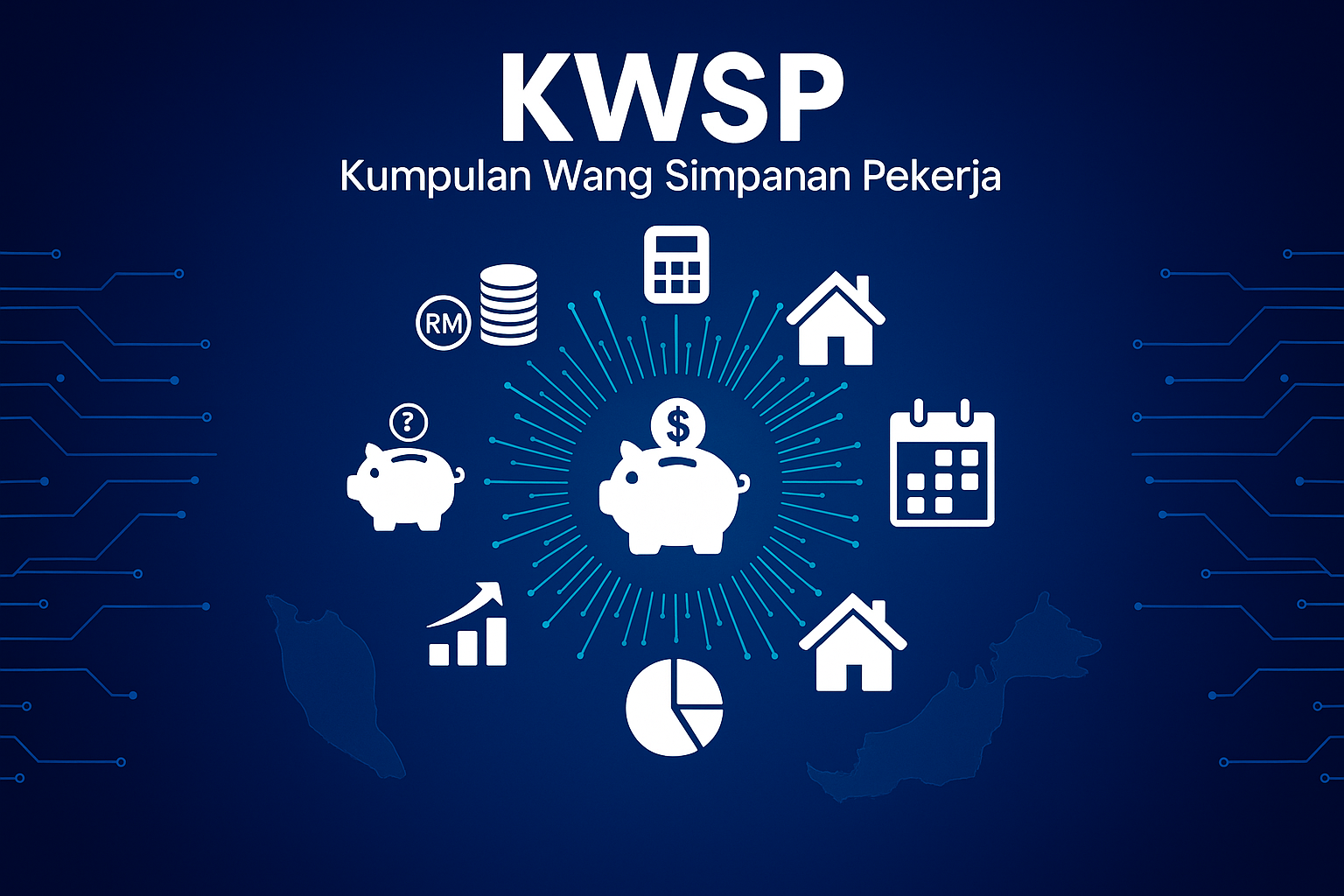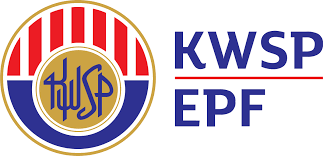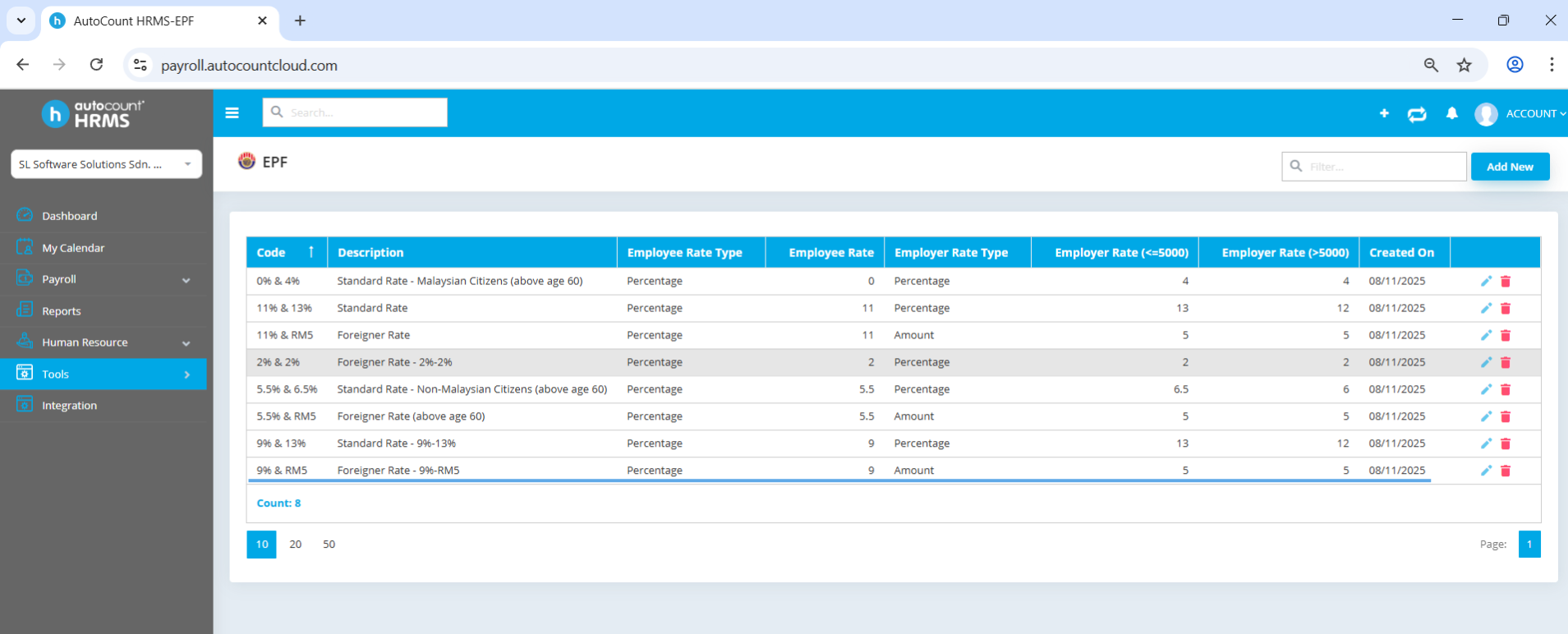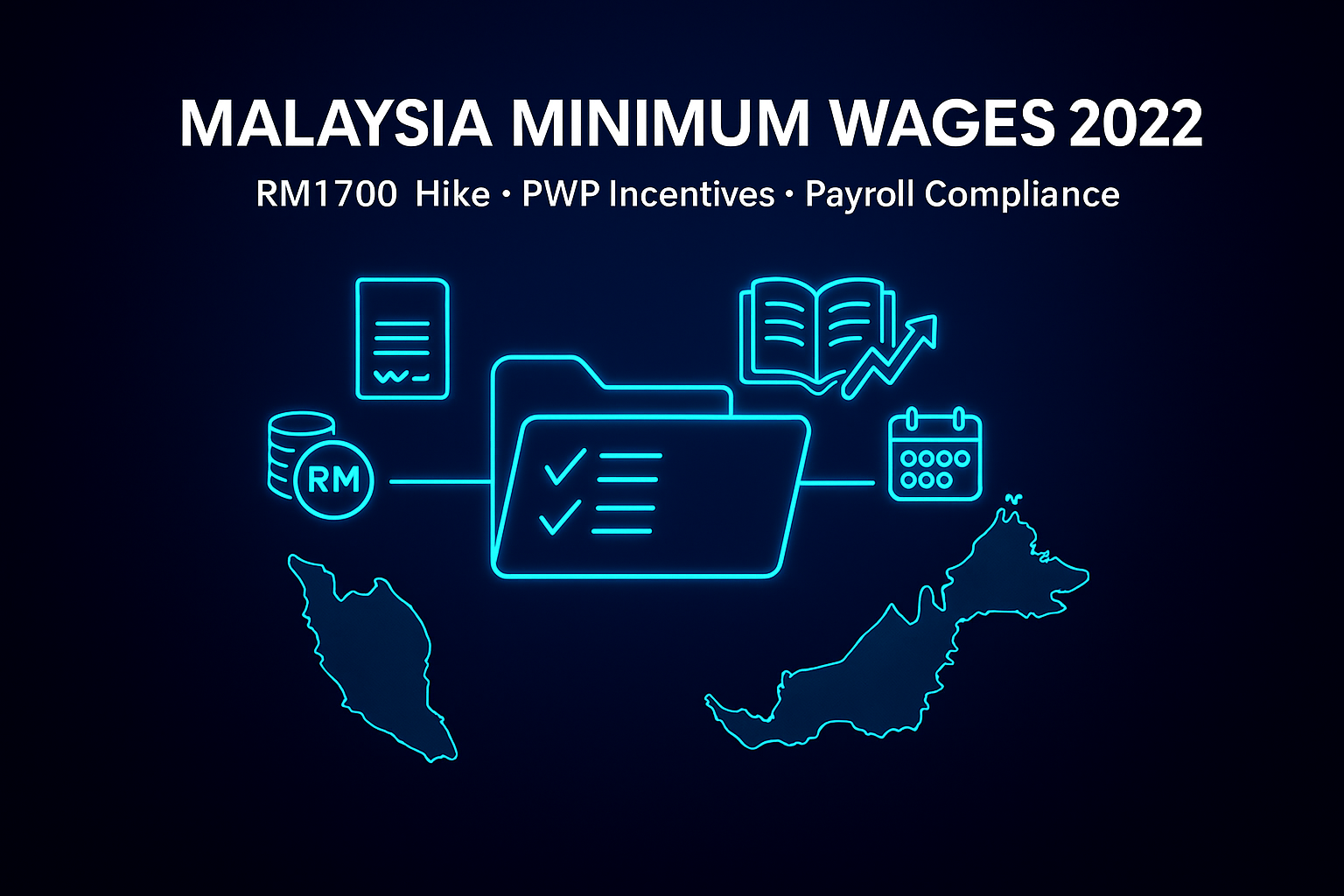EPF (Employees Provident Fund) Training Manual (2025 Update)
A complete 2025 EPF training guide for Malaysian payroll teams. Learn contribution rules, calculation methods, and compliance updates under the latest EPF Act amendments.

1. Introduction to EPF (KWSP)
1.1 The Role of EPF in Malaysia’s Payroll System
The Employees Provident Fund (EPF), or KWSP (Kumpulan Wang Simpanan Pekerja), is the official statutory body managing compulsory retirement savings for all private sector employees in Malaysia. As a payroll professional, your primary responsibility is ensuring strict adherence to the EPF Act 1991 for accurate monthly EPF contributions.

For a complete overview of Malaysia’s statutory payroll contributions, including SOCSO, EIS and HRD, check out our Essential Guide to EPF, SOCSO, EIS and HRD Contributions in Malaysia
1.2 Core Legal Framework for Compliance
| Legal Reference | Focus Area | Impact on Payroll |
|---|---|---|
| EPF Act 1991 | Principal governing law. | Defines "wages" and employer obligations. |
| EPF (Amendment) Act 2025 | Mandatory Foreign Worker contribution. | Implements Part F rates (2% + 2%) from Oct 2025. |
| Third Schedule | EPF Contribution Rates tables. | Provides mandatory pre-calculated contribution amounts (up to RM20,000). |
| Second Schedule | Detailed exemptions list. | Identifies employees excluded from mandatory contributions. |
2. Eligibility and Registration
2.1 Mandatory EPF Contributors
| Contributor Type | Eligibility Criteria | Key Compliance Action |
|---|---|---|
| Employees | Malaysian Citizens / Permanent Residents (PR) aged 18–75. Foreign Workers with valid passes (mandatory from Oct 2025). | Must obtain an EPF membership number via Form KWSP 3. |
| Employers | Any entity employing one or more eligible individuals under a Contract of Service. | Must register with EPF within 7 days of the first hire. |
2.2 EPF Registration Procedures
- New Employer Registration: Submit Form KWSP 1 and necessary business registration documents. Registration is highly encouraged via the i-Akaun (Employer) portal.
- Employee Records: Ensure employee demographic and salary data is accurately registered to prevent errors (CTML - Contribution Without Complete Information).

3. EPF Contribution Rates (2025 Third Schedule)
3.1 Statutory Contribution Rate Matrix (Effective Oct 2025)
Rates are determined by the Third Schedule, based on the employee’s status and EPF Contributable Wage (ECW) bracket.
| Category | Age Group | Monthly Wage (ECW) | Employer Rate | Employee Rate | Third Schedule Ref. |
|---|---|---|---|---|---|
| Malaysian / PR | Below 60 | ≤ RM5,000 | 13% | 11% | Part A |
| Malaysian / PR | Below 60 | > RM5,000 | 12% | 11% | Part A |
| Malaysian | 60–75 | Any amount | 4% | 0% | Part E |
| Permanent Resident | 60–75 | ≤ RM5,000 | 6.5% | 5.5% | Part C |
| Non-Malaysian | Any age | Any amount | 2% | 2% | Part F |
3.2 Rate Application Rules
- Age Change Rule: The new rate (e.g., transition to age 60-75) applies for the entire payroll month in which the employee's birthday falls.
- Voluntary Contribution (VE): Employees can increase their deduction via Form KWSP 17A. Employers must process this change through i-Akaun.
For more detailed information on mandatory employer contributions to the Employees Provident Fund (EPF), including applicable rates and responsibilities, employers can refer to the official Employer Contribution to Employees page on the EPF website.
4. EPF Calculation Methodology
4.1 Defining EPF Contributable Wage (ECW)
Definition of "Wage" under Employees Provident Fund Act 1951
“Wages” means all remuneration in money, due to an employee under his contract of service or apprenticeship whether agreed to be paid monthly, weekly, daily or otherwise and includes any bonus, commission or allowance payable by the employer to the employee whether such bonus, commission or allowance is payable under his contract of service, apprenticeship or otherwise, but does not include:
- service charge
- overtime payment
- gratuity
- retirement benefit
- retrenchment, lay-off or termination benefits
- any travelling allowance or the value of any travelling concession; or
- any other remuneration or payment as may be exempted by the Minister
For further details, please refer to the EPF Act 1991 – KWSP Malaysia.
The First Step: Calculating ECW and Its Included or Excluded, Regardless of Payment Frequency
| Included in ECW (Contributable) | Excluded from ECW (Non-Contributable) |
|---|---|
| Fixed Salary/Wages and Fixed Allowances (Housing, Transport) | Overtime Payments (Excluded by EPF Act 1991) |
| Commissions, Contractual Bonuses | Gratuity and Retirement Benefits |
| Arrears of Salary and Payment in Lieu of Notice | Actual Traveling/Expense Claims (Reimbursements) |
4.2 The Calculation Steps
| Step | Action | Principle |
|---|---|---|
| 1. Calculate ECW | Sum all Contributable Income for the month. | Establishes the amount subject to contribution. |
| 2. Identify Part | Determine the relevant Part (A, C, E, or F) based on ECW and status. | Locates the correct EPF contribution rates. |
| 3. Locate Amounts | Look up the ECW amount in the Third Schedule table. | Mandatory method for ECW ≤ RM20,000. |
5. Detailed EPF Calculation Scenarios
Scenario 1: ECW Fluctuation Across Salary Brackets
Employee: PR, 40 years old.
| ECW Components | ECW Total | Employer Rate | EPF Payable Amount |
|---|---|---|---|
| Basic RM5,000 | ≤ RM5,000 | 13% (Part A) | RM1,200 |
| Basic RM5,800 | > RM5,000 | 12% (Part A) | RM1,334 |
| The applicable rate depends on the ECW in the month the bonus or fluctuating pay is received. |
Scenario 2: Mixed Contributable and Non-Contributable Income
Correct classification prevents under/over-contribution.
| Income Type | Amount (RM) | Status | Calculation Basis |
|---|---|---|---|
| Fixed Basic Salary | 7,000 | Contributable | ECW |
| Sales Commission | 1,000 | Contributable | ECW |
| Overtime Payment | 1,200 | EXCLUDED | Statutory Exemption |
| Travel Claim | 400 | EXCLUDED | Reimbursement |
| Final ECW: | 8,000 | (7,000 + 1,000) | Use Part A (12% + 11%) |
Scenario 3: ECW Above RM20,000 (Exact Percentage Rule)
The Third Schedule tables are disregarded; use exact percentages.
ECW Total: RM21,500
Employee Share (11%): RM21,500 × 0.11 = RM2,365.00
Employer Share (12%): RM21,500 × 0.12 = RM2,580.00
EPF Payable Amount: RM4,945.00
Scenario 4: Age 60 Transition
Employee: Malaysian, turns 60 on March 15th. ECW: RM6,000.
- Action: Apply Part E rates (4% Employer, 0% Employee) for the entire month of March.
- Result: Employee Share: RM0, Employer Share: RM240.
Scenario 5: Foreign Worker Implementation (October 2025)
Employee: Non-Malaysian, ECW RM3,000.
- Action: Apply Part F rates (2% + 2%) for the October wage (due Nov 15th).
- Result: Employee Share: RM60, Employer Share: RM60. EPF Payable Amount: RM120.
Scenario 6: Arrears Payment
Salary arrears (RM1,000) for a previous month are paid this month.
- Action: Arrears are included in the ECW for the current month of payment and calculated at current contribution rates.
- Rule: Do NOT recalculate contributions for the past period.
Scenario 7: Salary Below RM5,000, but Bonus Causes ECW to Exceed RM5,000
Employee: Malaysian, 35 years old.
ECW: Basic Salary RM4,900 + Allowance RM50 + Bonus RM500
- Without bonus: RM4,900 + RM50 = RM4,950 (≤ RM5,000)
- With bonus: RM4,900 + RM50 + RM500 = RM5,450 (> RM5,000)
Applicable Rates (Part A – Malaysian Below 60)
| Condition | Employer Rate | Employee Rate |
|---|---|---|
| ECW ≤ RM5,000 | 13% | 11% |
| ECW > RM5,000 | 12% | 11% |
Contribution Calculation:
ECW Total: RM5,450
Employee Share (11%): RM5,450 × 0.11 = RM599.50
Employer Share (12%): RM5,450 × 0.12 = RM654.00
EPF Payable Amount: RM1,253.50

6. Compliance and Documentation
6.1 Monthly Remittance Timeline
Meeting the 15th of the month deadline is the most critical EPF compliance point.
| Date Range | Key Action | Compliance Mandate |
|---|---|---|
| 1st - 10th | Finalize the payroll data and confirm the EPF Payable Amount for all employees. | Accurate Calculation |
| 10th - 14th | Final submission file generation (e-Caruman CSV). | Verification |
| 15th | REMITTANCE DEADLINE. Submit Form A and pay the total EPF Payable Amount electronically. | Statutory Deadline (KWSP) |
For a deeper understanding of Malaysia’s statutory payroll reporting process, which covers monthly submissions, statutory forms and compliance tracking, visit our Statutory Payroll Reporting in Malaysia Guide
6.2 Digital Submission via i-Akaun
- i-Akaun (Employer) is the official platform for: file submission (Form A), payment via e-Caruman/FPX, and managing employee records (KWSP 3, 8D, etc.).
- Audit Trail: Retain all digital receipts and monthly contribution statements for 7 years.
7. Penalties and Enforcement
7.1 Non-Compliance Penalties
Failing to adhere to the EPF Act 1991 can result in severe legal consequences for the employer and directors.
- Late Payment Charge: Compound interest calculated at 1% per month on the overdue amount.
- Legal Action: Fines of up to RM10,000 per employee or imprisonment up to three years for willful non-payment or fraudulent statements.
- Dividend Liability: The employer must pay the employee any lost dividends due to late contribution remittance.
7.2 Error Correction Process
- Adjustment Form: Form KWSP 8D.
8. 2025 Update: Foreign Worker Mandatory Contribution
8.1 Implementation Plan
This key legislative change mandates EPF contribution for all non-Malaysian citizens (excluding domestic workers) holding valid employment passes, effective from the October 2025 wage.
| Phase | Action Item |
|---|---|
| System Update | Incorporate Part F (2% + 2%) logic into payroll software and verify foreign worker categorization. |
| Registration | Ensure all non-member foreign employees are registered with EPF before the October payroll run. |
| Remittance | Submit the first mandatory contribution for these employees by November 15, 2025. |
9. Payroll Resources & Guides
Explore our comprehensive guides to understand statutory requirements and streamline your payroll processes in Malaysia.
Manage your payroll easily with AutoCount Payroll, a system built for accuracy and compliance with Malaysia’s EPF and statutory rules. It automates salary calculations, EPF contributions, and reports -saving you time and reducing errors.


Disclaimer
The information provided on this page is for general guidance only and does not constitute professional advice. While we strive to keep the content accurate and up-to-date, the laws and regulations of the Employees Provident Fund Organisation (EPF) in Malaysia may change, and individual circumstances may vary. You should not rely solely on the information here when making decisions related to EPF training, contributions, withdrawals, compliance or any other official matter. For specific advice tailored to your situation, please consult a qualified professional or contact EPF directly. We disclaim any liability for losses or damage arising from relying on this content.
Is Your EPF Contribution in Malaysia Fully Compliant?
Stay ahead with AutoCount: automate EPF calculations, monitor contributions, and ensure compliance for 2025.



